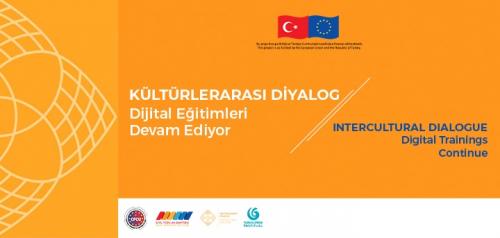Digital Training on Intercultural Dialogue Continues
The first two units of digital training designed specifically for Yunus Emre Institute have 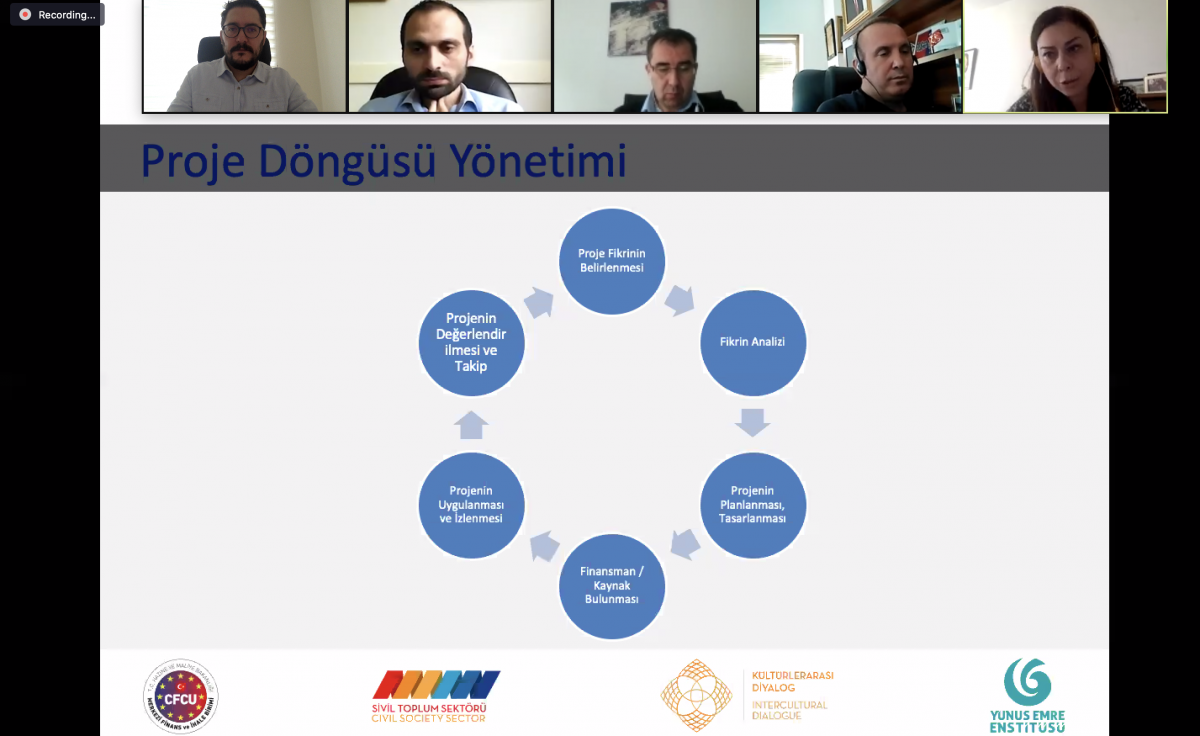 been completed within the scope of EU-Turkey Intercultural Dialogue Programme, led by the Yunus Emre Institute. In these two units, nearly fifty participants from Yunus Emre Institute’s cultural centres in more than fifteen countries had the opportunity to further develop their expertise with live sessions, asynchronous videos and study resources on the Concept of Intercultural Dialogue, Case Studies and Project Cycle Management.
been completed within the scope of EU-Turkey Intercultural Dialogue Programme, led by the Yunus Emre Institute. In these two units, nearly fifty participants from Yunus Emre Institute’s cultural centres in more than fifteen countries had the opportunity to further develop their expertise with live sessions, asynchronous videos and study resources on the Concept of Intercultural Dialogue, Case Studies and Project Cycle Management.
Digital trainings which was opened by Prof. Dr. Şeref Ateş, President of Yunus Emre Institute, on 14 September 2020, consist of “Intercultural Dialogue”, “Project Cycle Management” and “Communication and Networking”
INTEGRATING FUNDAMENTAL CONCEPTS OF INTERCULTURAL DIALOGUE INTO THE WORKING DYNAMICS OF YUNUS EMRE INSTITUTE
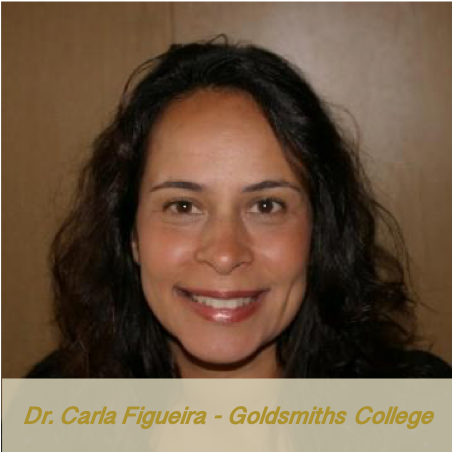 In the first part of the 12-week online trainings, the participants experienced the basic concepts of intercultural dialogue and how this concept could be integrated into the work of the Institute. Trainings also provided participants with the opportunity to hear the experience and knowledge of field experts from Turkey and around world. Dr. Carla Figueira from Goldsmiths College in London, an expert on intercultural dialogue, held a remarkable session on both intercultural dialogue as a concept and its importance. Dr. Figueira emphasized the cultural diplomacy studies and their contribution to the dialogue, and shared key information on large-scale cultural projects based on her own experience.
In the first part of the 12-week online trainings, the participants experienced the basic concepts of intercultural dialogue and how this concept could be integrated into the work of the Institute. Trainings also provided participants with the opportunity to hear the experience and knowledge of field experts from Turkey and around world. Dr. Carla Figueira from Goldsmiths College in London, an expert on intercultural dialogue, held a remarkable session on both intercultural dialogue as a concept and its importance. Dr. Figueira emphasized the cultural diplomacy studies and their contribution to the dialogue, and shared key information on large-scale cultural projects based on her own experience.
The trainings also included sessions on the practices and dynamics of the cultural dialogue between the European Union and Turkey, and allowed participants to consolidate their knowledge through case studies from different regions of the world.
KÜLTÜR ARAÇLARI VE YARATICI ENDÜSTRİLER NASIL BİRLİKTE ÇALIŞABİLİR?
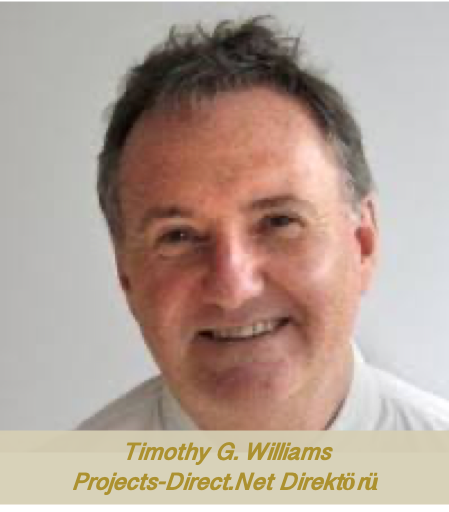
HOW CAN CULTURAL TOOLS AND CREATIVE INDUSTRIES WORK TOGETHER FOR CULTURAL COLLABORATION?
This session was delivered by Timothy G. Williams, Director at Projects-Direct.Net, and sought answers to the question of how to enter cultural markets. It also encouraged participants to examine different tools and develop new ideas about partnerships with creative industries. Participants were Yunus Emre Institute staff working in different countries. This session enabled them to examine opportunities on cultural cooperation with Turkey in the countries where they work. A comprehensive analysis on potential and stronger cooperation opportunities in various countries and various fields was conducted, considering Turkey's creative industries such as performing arts, fashion, architecture and design, film, TV, radio and music productions, software, publishing and cultural heritage.
Nermin Mollaoğlu, founder of Kalem Agency, also shared her experience regarding her agency's national and international efforts as well as the work of the publishing sector within the scope of intercultural dialogue. Mollaoğlu talked about the translations they were doing in order to make foreign literary works available in Turkish and to enable our own literary works to reach literature lovers abroad. Mollaoğlu also conveyed her experience regarding the structure of Istanbul International Literature Festival (ITEF) organized by Kalem Agency as well as their partnerships and events as part of the festival. She highlighted the important role that literature plays in intercultural dialogue.
BY WHICH METHODS INNOVATIVE IDEAS ARE TRANSFORMES INTO EFFECTIVE PROJECTS
Training participants had the opportunity to examine successful project cases as well as get theoretical knowledge about the project management cycle. They also had the chance to personally experience a series of efforts that will turn their ideas into effective output in the future. In this sessions “What is a project? What are the stages of bringing project ideas into action? What are the key criteria to consider in order to design and implement a successful project?” were the question to be replied.
Culture is a collection of stories that we get into … In another session of the training Özgür Önal underlined the importance of storytelling in successful projects. Touching on different methods and tools that could be used while telling the stories of cultural projects, Önal informed the participants about designing original activities and what effective stories could potentially be placed at the core of these activities.
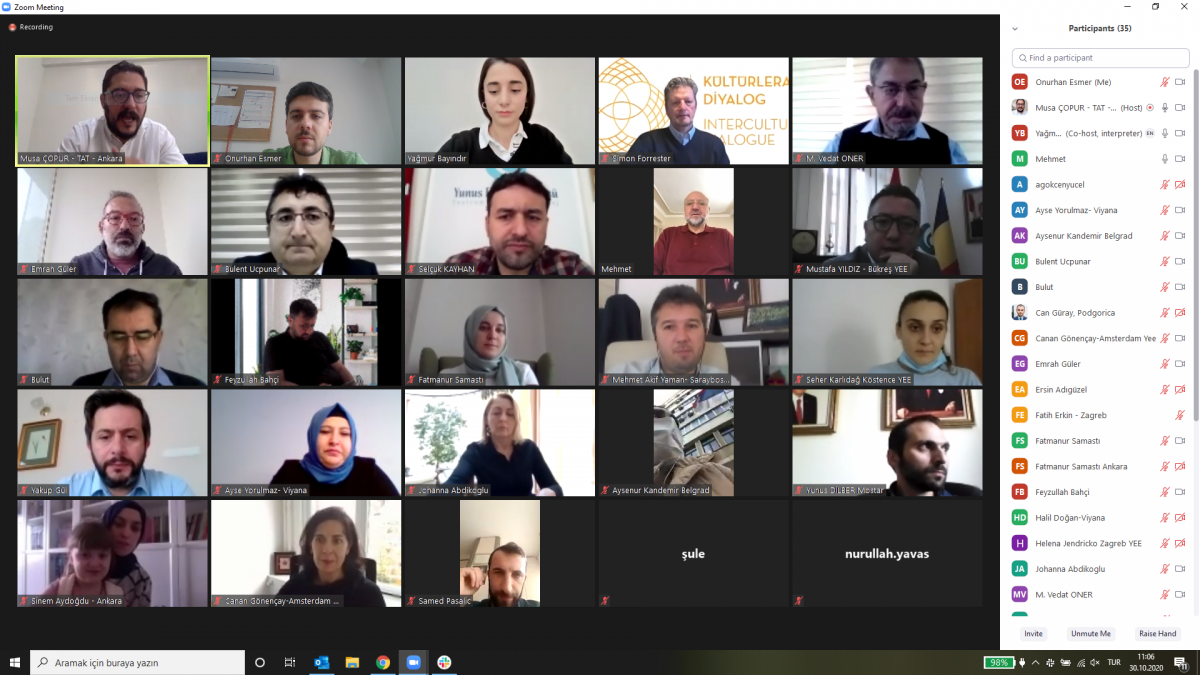
Cansu Ataman, project manager for Connect for Creativity, implemented by the British Council under the Intercultural Dialogue Programme, shared comprehensive knowledge and experience on implementation and partnership development. The Art and Technology Residence Programme was the important element of the Connect for Creativity project. Ataman provided information on these activities which widens the sphere of intercultural dialogue through an exchange of artists and sharing of best practices. Participants had the opportunity to examine numerous elements including but not limited to the famous writers and painters that London Heathrow Airport hosts time to time, the new generation digital residence facilities, the artists who worked on international container ships for a certain period, and the residence programmes aiming to record the transformation in the London Olympic park. In this session they also had the chance to exchange ideas on the implementation of large-scale projects.
In the next live session, participants had the chance to listen to Murat Özçelebi, EU Affairs Expert from the Project Implementation Unit of Directorate of EU Affairs. Özçelebi provided information on the financial cooperation programme between Turkey and the European Union, and offered details of the Erasmus + Programme, the scope of the new fiscal period named IPA III, and different structures such as Horizon, the so-called Union programme. Murat Özçelebi also touched on the role of partnership and cooperation for the success of a project while designing and managing projects within the scope of financial cooperation. He also drew attention to the fact that project drafting and management work should be handled professionally for long-term success.
CULTURE, IDENTITY AND COMMUNICATION
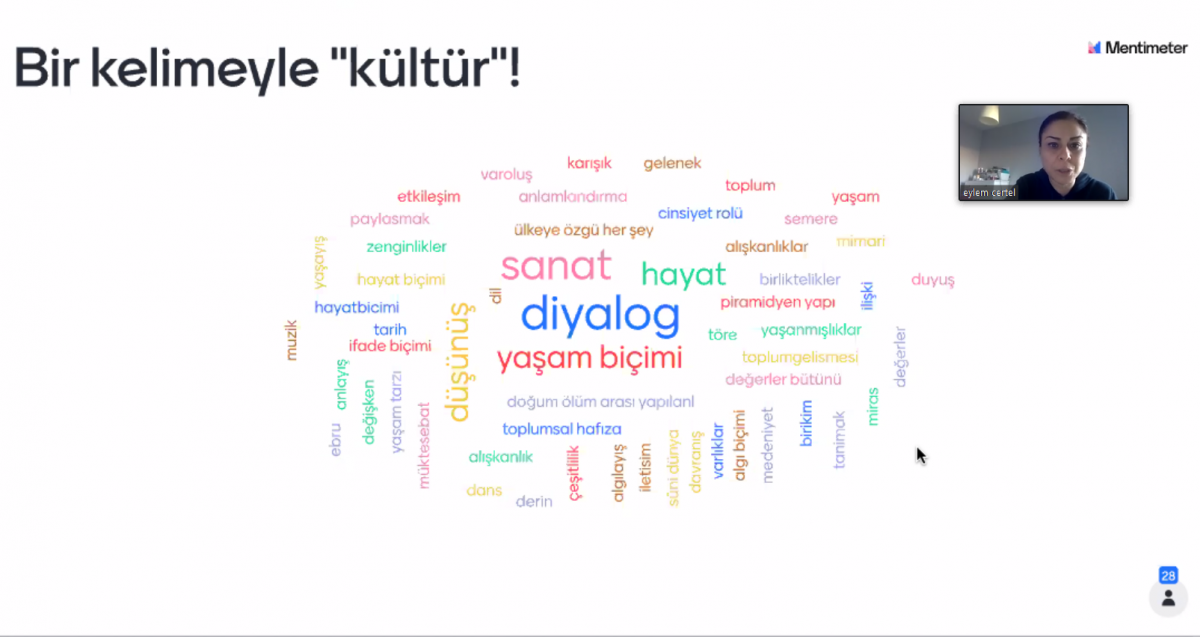 The third part of the training focuses on developing communication and networking skills. In the first session of this part, participants worked on the multi-dimensional structure of cultural identity as well as common references, and discussed the factors affecting cultural identity and how this reflects on working dynamics. In this session, the role of cultural identity in the communication strategies that Yunus Emre Institute can employ to reach greater masses through its worldwide activities was also covered.
The third part of the training focuses on developing communication and networking skills. In the first session of this part, participants worked on the multi-dimensional structure of cultural identity as well as common references, and discussed the factors affecting cultural identity and how this reflects on working dynamics. In this session, the role of cultural identity in the communication strategies that Yunus Emre Institute can employ to reach greater masses through its worldwide activities was also covered.
The third group of trainings will continue in November and participants will have the opportunity to hear the knowledge and experience of different experts from different fields on tools to strengthen intercultural dialogue, techniques to establish and manage new partnerships, creative methods for project financing, and how to measure and evaluate efforts in order to attain a strong intercultural dialogue.
WHAT IS INTERCULTURAL DIALOGUE DIGITAL TRAINING?
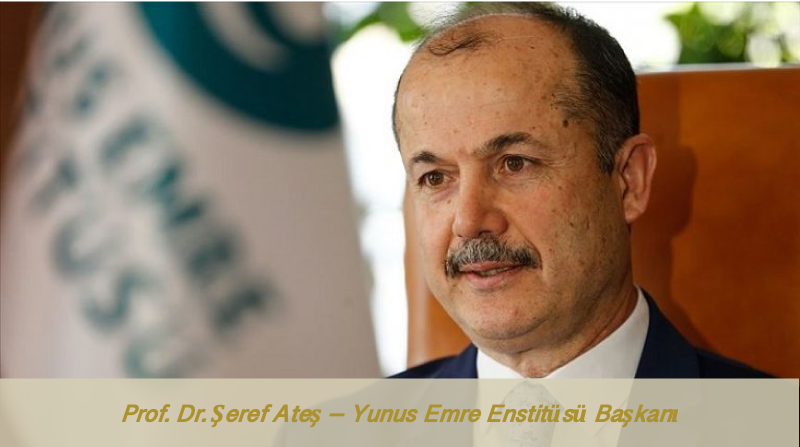
The EU-TR Intercultural Dialogue Programme started back in January 2019 and is co-financed by the Republic of Turkey and the European Union. Under the Programme, grants were provided to projects developed and implemented by 4 European cultural centers and their partners. A series of capacity building activities for Yunus Emre Institute as the Programme coordinator, has constituted an important pillar of this two-year Intercultural Dialogue Programme. These studies have been transferred to the digital environment due to the pandemic, and consist of 3 parts and 12 modules.
This long-term training programe has 3 main goals:
- Contributing to strengthen and improve effectiveness of intercultural dialogue in the activities of Yunus Emre Institute both at central level and through their Cultural Centers in Europe by. providing knowledge and new set of skills for collaborative project development and management, fund-raising, communication, monitoring and evaluation,
- Enabling training participants to present concrete project ideas for strengthening intercultural dialogue and developing communication strategies for such project ideas;
- Launching a training portal based on this pilot trainings and using this portal as a platform to develop self-learning opportunities accessible to all staff of the Institute.
It is possible to attend the 12-week pilot training in two different ways. In the first part called the synchronous modules, participants are expected to attend and follow all digital sessions live. The asynchronous module, on the other hand, includes a series of studies developed for the participants to put further on the theoretical knowledge they acquired through the trainings. Participants can access this platform at any time to read different resources, do practical work and develop sample documents. Coaching support is another important element of this training programme. Participants can receive coaching support from field experts on different topics that they may individually need support for.

